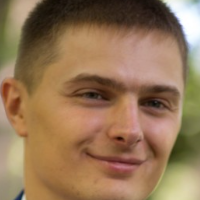International Journal of Information Technology and Computer Science (IJITCS)
IJITCS Vol. 6, No. 8, 8 Jul. 2014
Cover page and Table of Contents: PDF (size: 389KB)
A Multidimensional Cascade Neuro-Fuzzy System with Neuron Pool Optimization in Each Cascade
Full Text (PDF, 389KB), PP.11-17
Views: 0 Downloads: 0
Author(s)
Index Terms
Learning Method, Cascade System, Neo-Fuzzy Neuron, Computational Intelligence
Abstract
A new architecture and learning algorithms for the multidimensional hybrid cascade neural network with neuron pool optimization in each cascade are proposed in this paper. The proposed system differs from the well-known cascade systems in its capability to process multidimensional time series in an online mode, which makes it possible to process non-stationary stochastic and chaotic signals with the required accuracy. Compared to conventional analogs, the proposed system provides computational simplicity and possesses both tracking and filtering capabilities.
Cite This Paper
Yevgeniy V. Bodyanskiy, Oleksii K. Tyshchenko, Daria S. Kopaliani, "A Multidimensional Cascade Neuro-Fuzzy System with Neuron Pool Optimization in Each Cascade", International Journal of Information Technology and Computer Science(IJITCS), vol.6, no.8, pp.11-17, 2014. DOI:10.5815/ijitcs.2014.08.02
Reference
[1]A. Cichocki, R. Unbehauen, Neural Networks for Optimization and Signal Processing. Stuttgart: Teubner, 1993.
[2]S. Haykin, Neural Networks: A Comprehensive Foundation. Upper Saddle River, New Jersey: Prentice Hall, 1999.
[3]N. Kasabov, Evolving Connectionist Systems. London: Springer-Verlag, 2003.
[4]E. Lughofer, Evolving Fuzzy Systems – Methodologies, Advanced Concepts and Applications. Berlin-Heidelberg: Springer-Verlag, 2011.
[5]S.E. Fahlman and C. Lebiere, “The cascade-correlation learning architecture,” in Advances Neural Information Processing Systems, San Mateo, CA: Morgan Kaufman, 1990, pp. 524-532.
[6]L. Prechelt, “Investigation of the CasCor family of learning algorithms,” in Neural Networks, vol. 10, 1997, pp. 885-896.
[7]R.J. Schalkoff, Artificial Neural Networks, New York: The McGraw-Hill Comp., 1997.
[8]E.D. Avedjan, G.V. Bаrkаn and I.K. Lеvin, “Cascade neural networks,” in J. Avtomatika i Telemekhanika, vol. 3, 1999, pp. 38-55.
[9]Ye. Bodyanskiy, A. Dolotov, I. Pliss and Ye. Viktorov, “The cascaded orthogonal neural network,” in Int. J. Information Science and Computing, vol. 2, Sofia: FOI ITHEA, 2008, pp. 13-20.
[10]Ye. Bodyanskiy and Ye. Viktorov, “The cascaded neo-fuzzy architecture and its on-line learning algorithm,” in Int. J. Intelligent Processing, vol. 9, Sofia: FOI ITHEA, 2009, pp. 110-116.
[11]Ye. Bodyanskiy and Ye. Viktorov, “The cascaded neo-fuzzy architecture using cubic-spline activation functions,” in Int. J. Information Theories and Applications, vol. 16, no. 3, 2009, pp. 245-259.
[12]Ye. Bodyanskiy, Ye. Viktorov and I. Pliss, “The cascade growing neural network using quadratic neurons and its learning algorithms for on-line information processing,” in Int. J. Intelligent Information and Engineering Systems, vol. 13, Rzeszov-Sofia: FOI ITHEA, 2009, pp. 27-34.
[13]V. Kolodyazhniy and Ye. Bodyanskiy, “Cascaded multi-resolution spline-based fuzzy neural network,” Proc. Int. Symp. on Evolving Intelligent Systems, pp. 26-29, 2010.
[14]Ye. Bodyanskiy, O. Vynokurova and N. Teslenko, “Cascaded GMDH-wavelet-neuro-fuzzy network,” Proc 4th Int. Workshop on Inductive Modelling, pp. 22-30, 2011.
[15]Ye. Bodyanskiy, O. Kharchenko and O. Vynokurova, “Hybrid cascaded neural network based on wavelet-neuron,” in Int. J. Information Theories and Applications, vol. 18, no. 4, 2011, pp. 35-343.
[16]Ye. Bodyanskiy, P. Grimm and N. Teslenko, “Evolving cascaded neural network based on multidimensional Epanechnikov’s kernels and its learning algorithm,” in Int. J. Information Technologies and Knowledge, vol. 5, no. 1, 2011, pp. 25-30.
[17]J-S.R. Jang, C.T. Sun and E. Mizutani, Neuro-Fuzzy and Soft Computing: A Computational Approach to Learning and Machine Intelligence, New Jersey: Prentice Hall, 1997.
[18]S. Wadhawan, G. Goel and S. Kaushik, “Data Driven Fuzzy Modelling for Sugeno and Mamdani Type Fuzzy Model using Memetic Algorithm,” in Int. J. Information Technology and Computer Science, vol. 5, no. 8, 2013, pp. 24-37, doi: 10.5815/ijitcs.2013.08.03.
[19]T. Yamakawa, E. Uchino, T. Miki and H. Kusanagi, “A neo fuzzy neuron and its applications to system identification and prediction of the system behavior,” Proc. 2nd Int. Conf. on Fuzzy Logic and Neural Networks, pp. 477-483, 1992.
[20]E. Uchino and T. Yamakawa, “Soft computing based signal prediction, restoration and filtering,” in Intelligent Hybrid Systems: Fuzzy Logic, Neural Networks and Genetic Algorithms, Boston: Kluwer Academic Publisher, 1997, pp. 331-349.
[21]T. Miki and T. Yamakawa, “Analog implementation of neo-fuzzy neuron and its on-board learning,” in Computational Intelligence and Applications, Piraeus: WSES Press, 1999, pp. 144-149.
[22]M. Barman and J.P. Chaudhury, “A Framework for Selection of Membership Function Using Fuzzy Rule Base System for the Diagnosis of Heart Disease,” in Int. J. Information Technology and Computer Science, vol. 5, no.11, 2013, pp. 62-70, doi: 10.5815/ijitcs.2013.11.07.
[23]B. Widrow and Jr.M.E. Hoff, “Adaptive switching circuits,” URE WESCON Convention Record, vol. 4, pp. 96-104, 1960.
[24]S. Kaczmarz, “Approximate solution of systems of linear equations,” in Int. J. Control, vol. 53, 1993, pp. 1269-1271.
[25]L. Ljung, System Identification: Theory for the User, New York: Prentice-Hall, 1999.
[26]Ye. Bodyanskiy, I. Kokshenev and V. Kolodyazhniy, “An adaptive learning algorithm for a neo-fuzzy neuron,” Proc. 3rd Int. Conf. of European Union Soc. for Fuzzy Logic and Technology, pp. 375-379, 2003.
[27]Ye. Bodyanskiy, O. Tyshchenko and D. Kopaliani, “Multidimensional non-stationary time-series prediction with the help of an adaptive neo-fuzzy model,” in Visnyk Nacionalnogo universytety “Lvivska politehnika”, vol. 744, 2012, pp. 312-320.
[28]W.M. Caminhas, S.R. Silva, B. Rodrigues and R.P. Landim, “A neo-fuzzy-neuron with real time training applied to flux observer for an induction motor,” Proceedings 5th Brazilian Symposium on Neural Networks, pp. 67-72, 1998.
[29]Ye.V. Bodyanskiy, I.P. Pliss and T.V. Solovyova, “Multistep optimal predictors of multidimensional non-stationary stochastic processes,” in Doklady AN USSR, vol. A(12), 1986, pp. 47-49.
[30]Ye.V. Bodyanskiy, I.P. Pliss and T.V. Solovyova, “Adaptive generalized forecasting of multidimensional stochastic sequences,” in Doklady AN USSR, vol. A(9), 1989, pp.73-75.
[31]Ye. Bodyanskiy and I. Pliss, “Adaptive generalized forecasting of multivariate stochastic signals,” Proc. Latvian Sign. Proc. Int. Conf., vol. 2, pp. 80-83, 1990.

